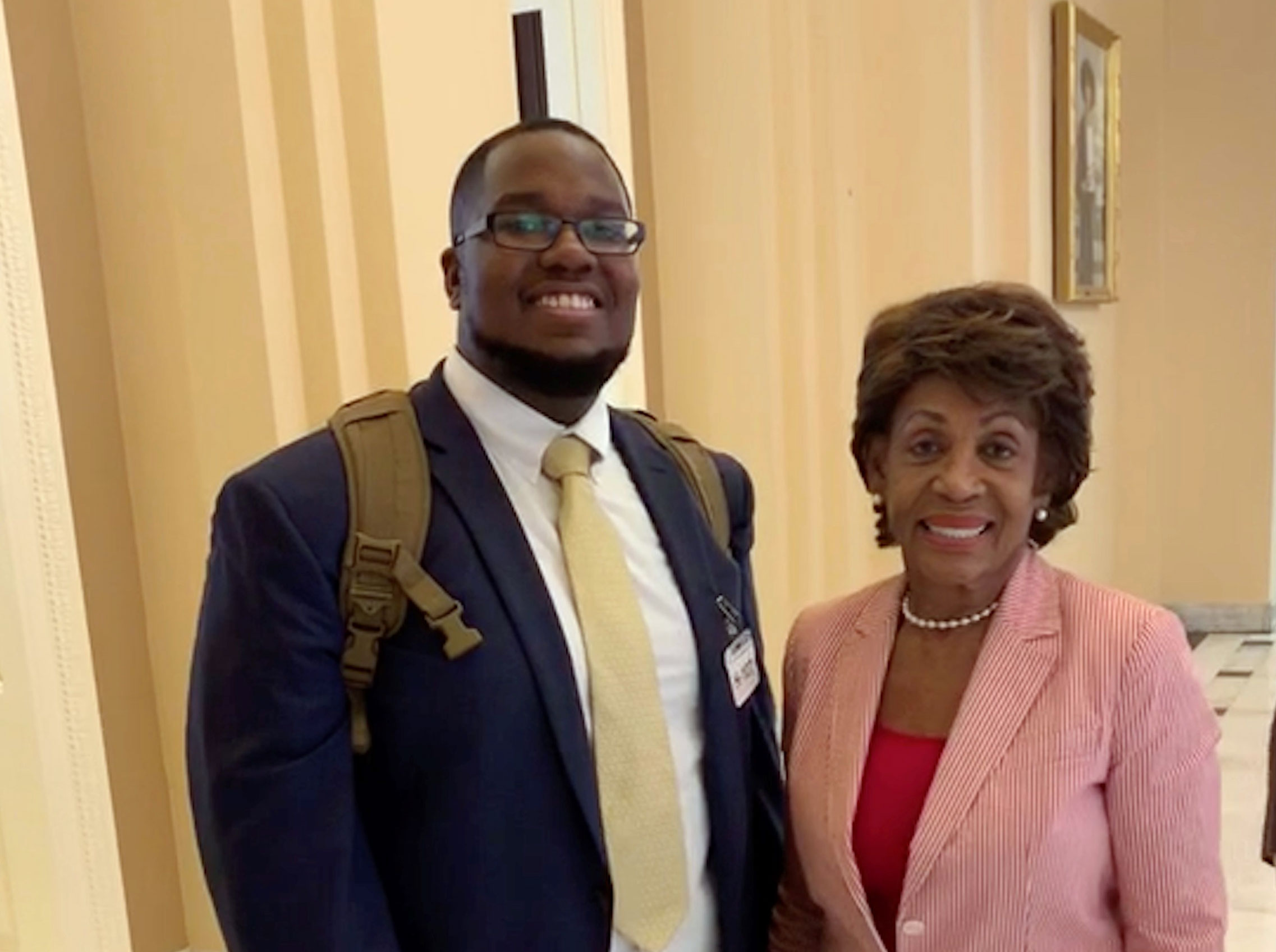Q&A: Talking Science and Policy as a UCAR Capitol Hill Scholar
Doctoral candidate Arthur (AJ) Moses visited Washington, D.C. in early June to visit with members of Congress and network.
AJ-Moses_UCAR_June2019_Maxine_Waters.edited2.jpg

**Update on August 10** Doctoral student Arthur (AJ) Moses in the Department of Environmental Science has been selected for the University of Corporation for Atmospheric Research (UCAR) Next Generation Fellowship in the Public Policy Track. In the summer of 2020, he will be based in Washington, D.C. working alongside UCAR's Operation Office.
Doctoral student Arthur (AJ) Moses in the Department of Environmental Science traveled to Washington, D.C. to meet members of Congress as one of five 2019 University Cooperation for Atmospheric Research (UCAR) Capitol Hill Scholars in early June.
In video essays, the selected participants outlined which Earth system science issue they thought policymakers should address—Moses highlighted the need for more attention on water availability and security.
The selected students accompanied UCAR leadership for several days to briefings with Congress members and staff, networking opportunities and an exploration of Capitol Hill. UCAR is a non-profit consortium of more than 115 North American colleges and universities focused in research and training in Earth system sciences.
Moses talks about his experience and what it meant for him.
Tell us a bit about yourself and your research.
I am a doctoral student working on a citizen science project called Project Harvest with Dr. Mónica Ramírez-Andreotta.
My current research focuses on testing for microbes and contaminants in rainwater harvesting systems and how it impacts people’s health in local communities.
I’m originally from Washington, D.C. and have always been interested in policy. Between my undergraduate degree in geography and time in the military, I’ve learned a lot about people and how they interact with the environment, as well as heard so many personal stories and struggles.
Now with my graduate research focused on citizen science and my minor in law, I’m moving into advocacy. I believe that even if you do great research, it doesn’t mean much if you can’t translate it into actionable policy.
Why did you want to participate in the UCAR Capitol Hill Scholar Program?
In my video essay, I talk about the importance of freshwater availability and security, something I’ve been interested in for a long time.
I was in the United States Marine Corps, as was my father. The base we were both stationed at nearly 30 years apart continually had water contamination issues.
I thought if the U.S. military struggles with clean water, then what about other communities? This is a serious issue that we need to address immediately on both the local and national level.
It seemed like a great opportunity to get on Capitol Hill with a liaison like UCAR, since Congress members and staff have very tight schedules.
What were of your favorite highlights as a UCAR Capitol Hill Scholar?
Meeting with people across the realm of public policy and scientific disciplines sparked ideas of how to approach policy and science differently. It helped me think about my future, since I want to go into environmental policy after I finish my graduate degree.
I was able to visit the offices of some Arizona Congress members, including Senator Kyrsten Sinema, Senator Martha McSally and Representative Raul Grijalva, and talk about my personal experience and values as a scientist.
I also happened to unofficially meet and talk with Representative Maxine Waters.

